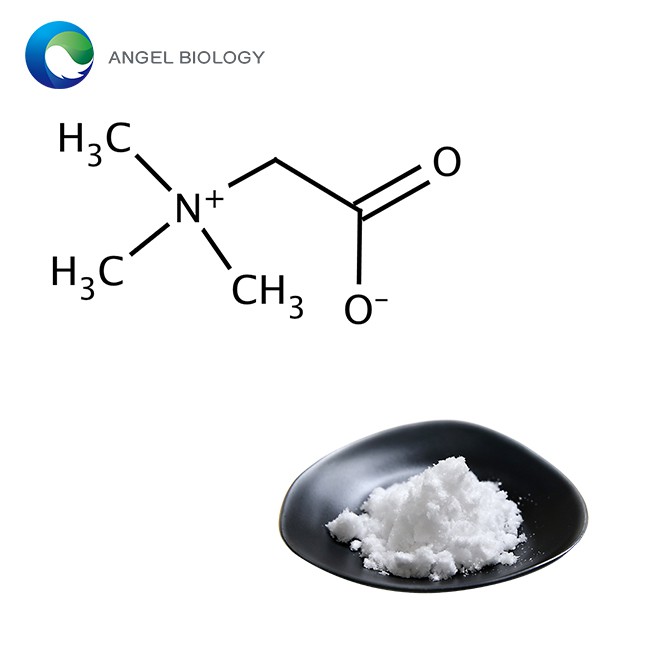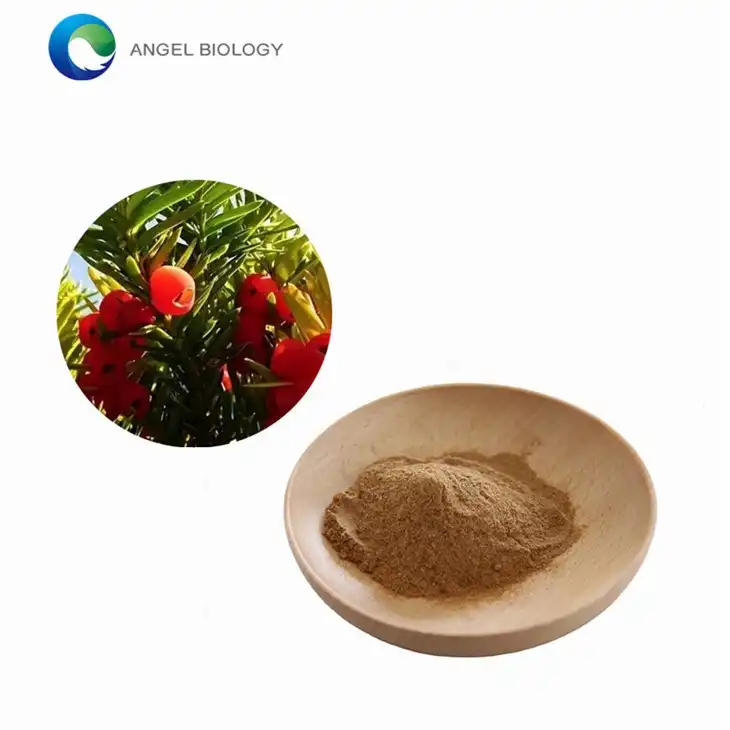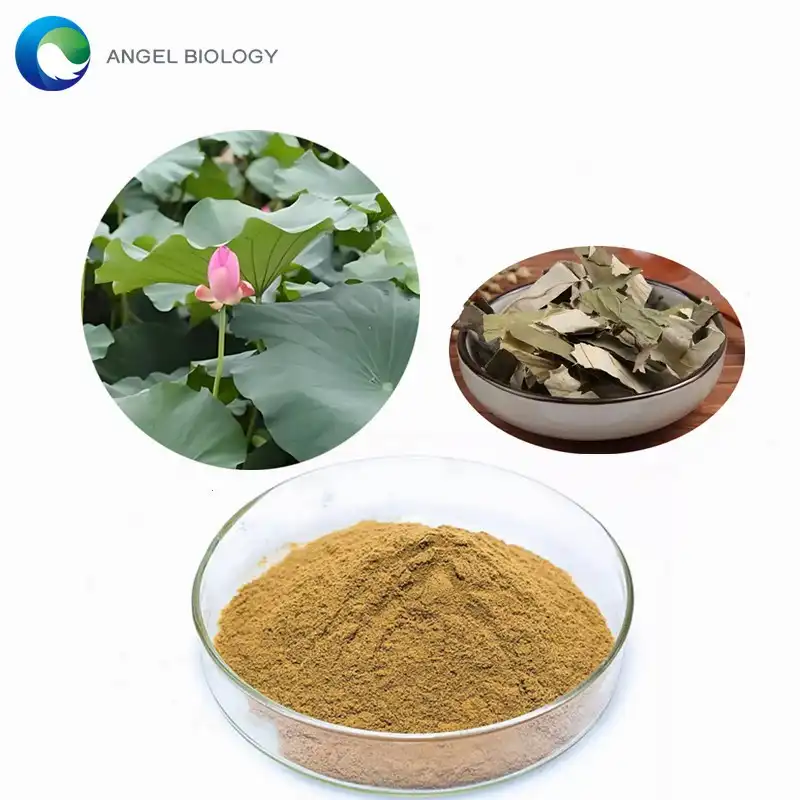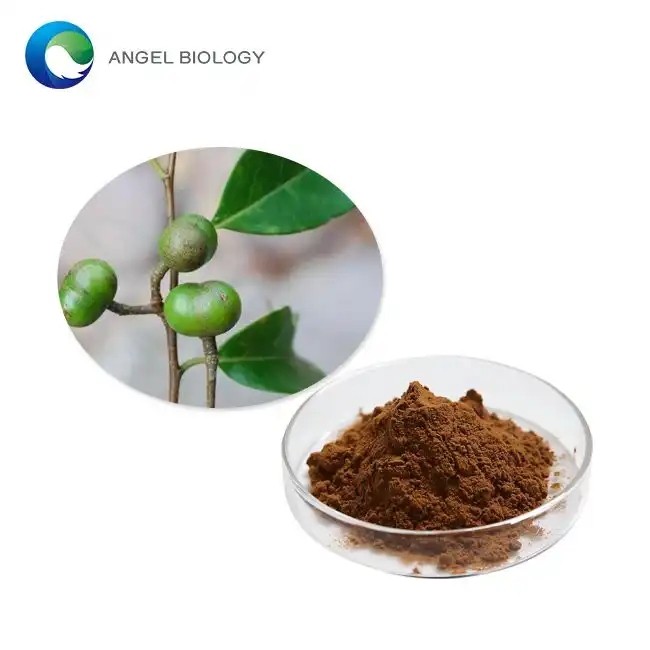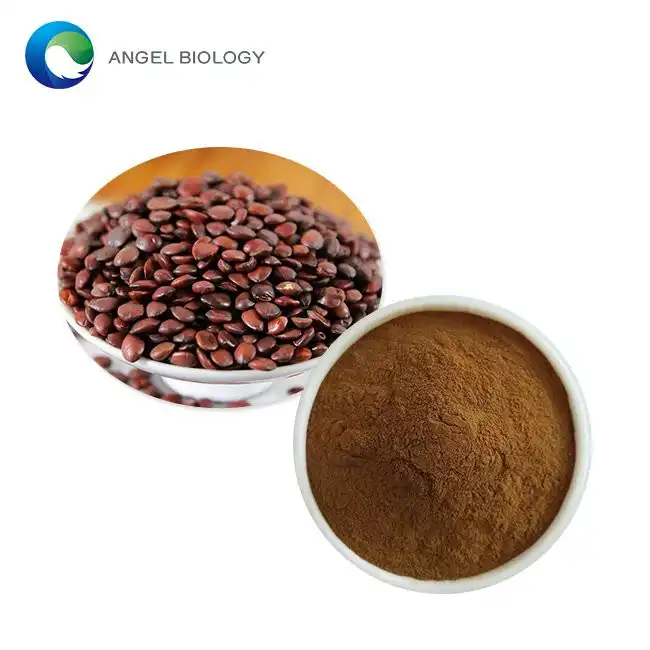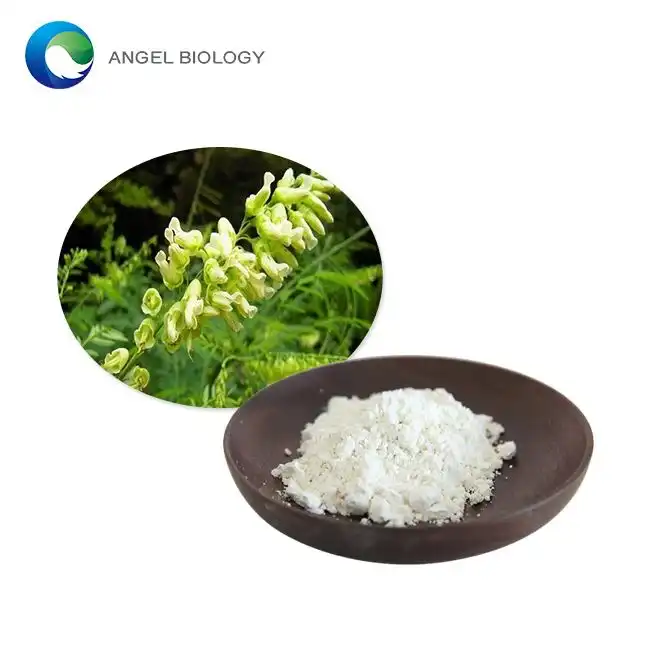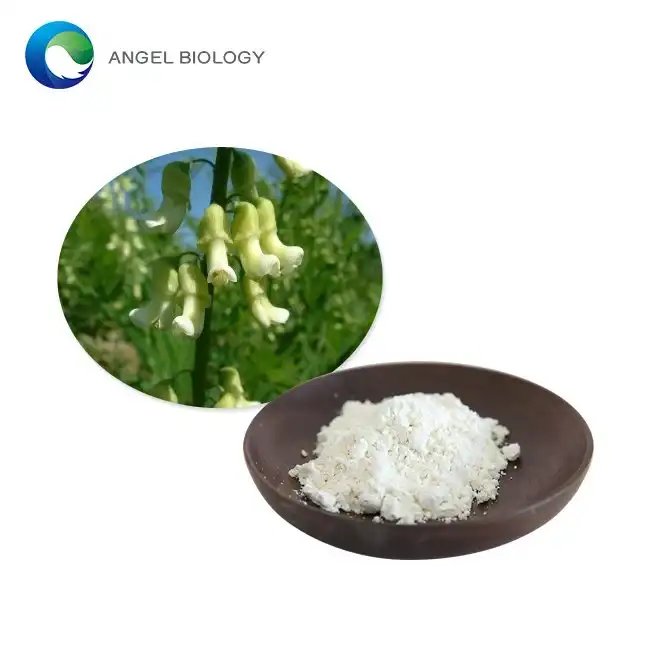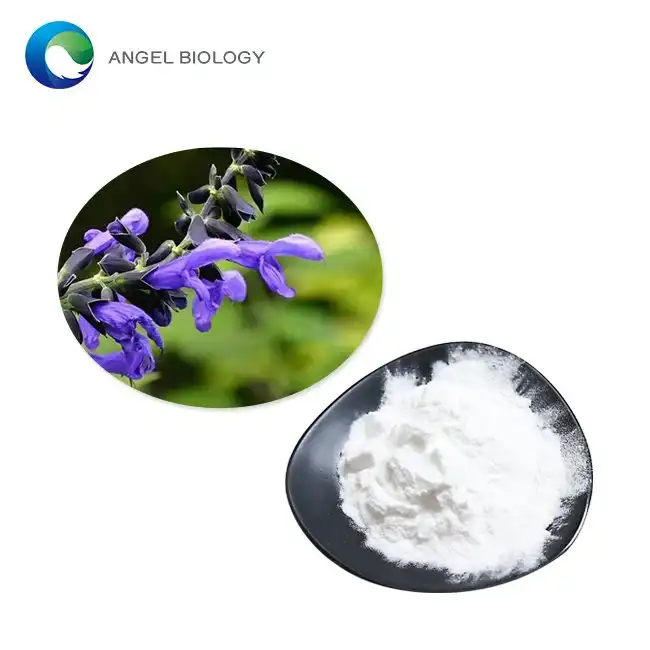What should you look for in fucoidan powder quality and purity?
When it comes to selecting a high-quality Fucoidan Extract Powder, several crucial factors come into play. First and foremost, purity is paramount. A superior fucoidan powder should boast a high percentage of active compounds, typically above 85%. This ensures that you're getting a concentrated dose of the beneficial polysaccharides that make fucoidan so valuable.
Another critical aspect to consider is the extraction method. Cold extraction techniques are often preferred as they preserve the delicate structure of fucoidan molecules, maintaining their bioactivity. Heat-based extraction methods, while more cost-effective, may degrade some of the compound's beneficial properties.
Additionally, look for products that have undergone third-party testing. These independent analyses verify the powder's purity, potency, and absence of contaminants such as heavy metals or microbes. Reputable manufacturer Angelbio will readily provide certificates of analysis upon request.
The color and texture of the powder can also be indicative of quality. High-grade fucoidan powder typically appears as a fine, light-colored powder with a slightly sweet, seaweed-like aroma. Coarse or dark-colored powders may suggest lower purity or the presence of other seaweed components.
Lastly, consider the sustainability practices of the manufacturer. Ethical sourcing of seaweed and environmentally friendly processing methods not only ensure a higher quality product but also contribute to the health of our oceans.
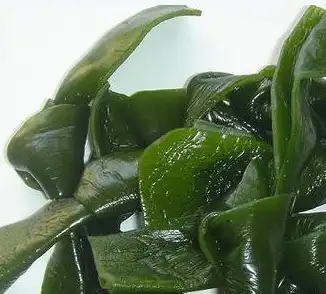
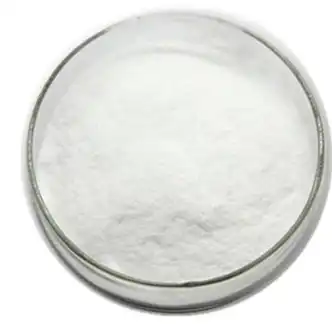
Source matters: wakame, mozuku, kombu — differences explained
The source of fucoidan can significantly impact its properties and potential health benefits. The three primary sources of fucoidan are wakame (Undaria pinnatifida), mozuku (Cladosiphon okamuranus), and kombu (Laminaria japonica). Each of these brown seaweeds produces fucoidan with unique characteristics.
Wakame-derived fucoidan is known for its high molecular weight and complex structure. This type of fucoidan has shown promising results in studies related to immune system modulation and anti-inflammatory effects. It's often the go-to choice for those seeking general health support.
Mozuku fucoidan, on the other hand, has a lower molecular weight and a simpler structure. This makes it potentially more bioavailable, meaning the body may absorb and utilize it more easily. Mozuku fucoidan has been the subject of numerous studies focusing on its potential anti-cancer properties.
Kombu-sourced fucoidan sits somewhere in between wakame and mozuku in terms of molecular weight and complexity. It's particularly noted for its antioxidant properties and potential benefits for cardiovascular health.
When choosing a Fucoidan Powder, consider your specific health goals. If you're looking for broad-spectrum support, a blend of fucoidan from different sources might be ideal. For targeted benefits, you may want to opt for a single-source product that aligns with your health objectives.
It's worth noting that the growing conditions of the seaweed can also influence the quality of the fucoidan. Seaweed harvested from pristine, unpolluted waters tends to yield higher quality fucoidan with fewer contaminants.
Molecular weight and sulfation: why they change bioactivity?
The molecular characteristics of fucoidan play a crucial role in determining its bioactivity and potential health benefits. Two key factors to consider are molecular weight and degree of sulfation.
Molecular weight refers to the size of the fucoidan molecules. Generally, fucoidan can be categorized into low molecular weight (LMW) and high molecular weight (HMW) varieties. LMW fucoidan, typically less than 10 kDa, is often more easily absorbed by the body and may exhibit stronger anti-inflammatory and antioxidant effects. HMW fucoidan, on the other hand, may have more potent immune-modulating properties.
The degree of sulfation is another critical factor influencing fucoidan's bioactivity. Sulfate groups attached to the fucoidan molecule contribute significantly to its biological effects. Higher sulfation levels have been associated with increased antiviral and anticoagulant activities.
Interestingly, the molecular weight and sulfation of fucoidan can vary not only between different seaweed species but also within the same species depending on factors like harvesting season and processing methods. This variability underscores the importance of choosing a standardized product from a reputable manufacturer Angelbio.
Some advanced Fucoidan Powder products undergo processes to optimize these molecular characteristics. For instance, controlled depolymerization techniques can reduce the molecular weight of fucoidan while preserving its sulfation, potentially enhancing its bioavailability and efficacy.
When selecting a fucoidan supplement, look for products that provide information about molecular weight and sulfation content. This transparency allows you to choose a product that aligns with your specific health needs and ensures you're getting a consistent and effective dose of this powerful marine polysaccharide.
It's important to note that while lower molecular weight and higher sulfation often correlate with increased bioactivity, the optimal characteristics can vary depending on the specific health benefit you're seeking. For example, some studies suggest that higher molecular weight fucoidan may be more effective for certain immune-modulating effects.
As research in this field continues to evolve, we're gaining a deeper understanding of how these molecular characteristics influence fucoidan's diverse range of biological activities. This knowledge is paving the way for more targeted and effective fucoidan-based supplements.
When incorporating fucoidan into your health regimen, it's crucial to consider your individual health status and goals. While fucoidan is generally well-tolerated, it's always wise to consult with a healthcare professional before starting any new supplement, especially if you have pre-existing health conditions or are taking medications.
The dosage of fucoidan can vary depending on the specific product and intended use. Most studies have used doses ranging from 100 mg to 3 grams per day, often divided into multiple doses. However, it's essential to follow the manufacturer's recommendations or your healthcare provider's guidance.
to 3 grams per day, often divided into multiple doses. However, it's essential to follow the manufacturer's recommendations or your healthcare provider's guidance.
To maximize the benefits of your Fucoidan Powder, consider combining it with a healthy lifestyle. A balanced diet rich in fruits, vegetables, and other sea vegetables can complement the effects of fucoidan. Regular exercise, stress management, and adequate sleep are also key components of a holistic approach to health.
As you embark on your journey with fucoidan, remember that consistency is key. Like many natural supplements, the benefits of fucoidan may take time to manifest. Regular, long-term use is often necessary to experience the full spectrum of its potential health-promoting effects.
Conclusion
Choosing the best fucoidan powder involves considering multiple factors, including purity, source, molecular characteristics, and your specific health needs. By understanding these aspects, you can make an informed decision and select a high-quality product that aligns with your wellness goals.
Are you ready to experience the potential benefits of high-quality fucoidan? Look no further than Angelbio. As an innovative enterprise dedicated to the research, development, and production of natural ingredients for health and wellness, Angelbio offers premium Fucoidan Powder that meets the highest standards of quality and purity. Our commitment to technology innovation and sustainable practices ensures that you receive a product that's not only effective but also environmentally responsible. Take the next step in your health journey with Angelbio's fucoidan powder. For more information or to place an order, please contact us at angel@angelbiology.com. Your path to improved well-being starts here!
References
1. Fitton, J. H., Stringer, D. N., & Karpiniec, S. S. (2015). Therapies from Fucoidan: An Update. Marine Drugs, 13(9), 5920-5946.
2. Ale, M. T., Mikkelsen, J. D., & Meyer, A. S. (2011). Important determinants for fucoidan bioactivity: A critical review of structure-function relations and extraction methods for fucose-containing sulfated polysaccharides from brown seaweeds. Marine Drugs, 9(10), 2106-2130.
3. Kandasamy, S., Khan, W., Evans, F., Critchley, A. T., & Prithiviraj, B. (2012). Tasco®: A product of Ascophyllum nodosum enhances immune response of Caenorhabditis elegans against Pseudomonas aeruginosa infection. Marine Drugs, 10(1), 84-105.
4. Nagamine, T., Hayakawa, K., Kusakabe, T., Takada, H., Nakazato, K., Hisanaga, E., & Iha, M. (2009). Inhibitory effect of fucoidan on Huh7 hepatoma cells through downregulation of CXCL12. Nutrition and Cancer, 61(3), 340-347.



